In 1989, Nintendo released the Gameboy, a portable gaming device. Having achieved landmark success with the Nintendo Entertainment system released in 1985, Nintendo entered the growing handheld market.
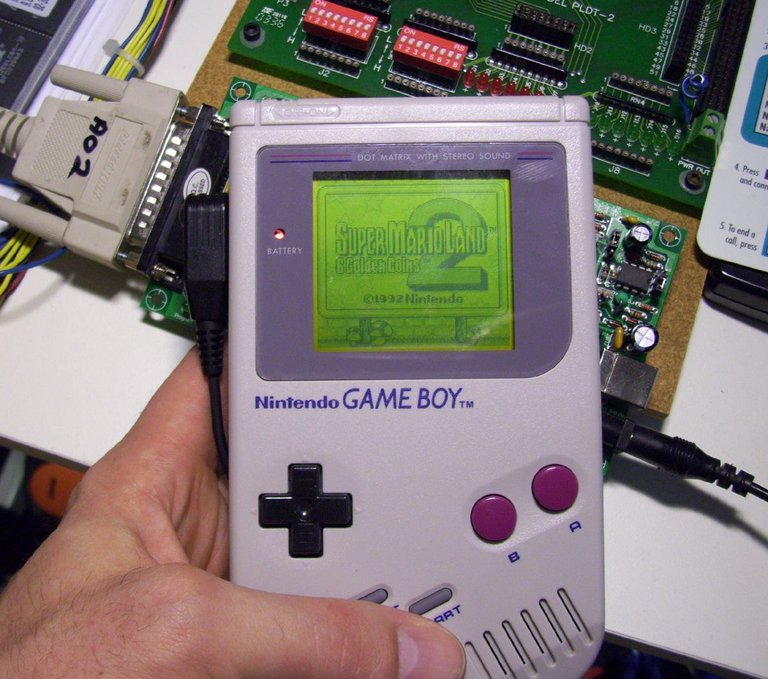
Gunpei Yokoi, one of Nintendo's greatest inventors and game makers, decided to make such a device with Nintendo’s famous research and development team. The result was the GameBoy, a monochromatic handheld. Although bulky in size with a rather bland appearance, the Game Boy totally revolutionized mobile gaming and thanks to the phenomenal popularity of Tetris and Pokémon, Nintendo GameBoy was crowned the undisputed champion of pocket-gaming, selling almost 120 million units worldwide with its variety of models including the GameBoy pocket and GameBoy color. When you throw in the GameBoy Advance, the Game Boy family of handhelds tops 200 million sold since then no other handhelds not even the Nintendo DS or 3DS has even come close.
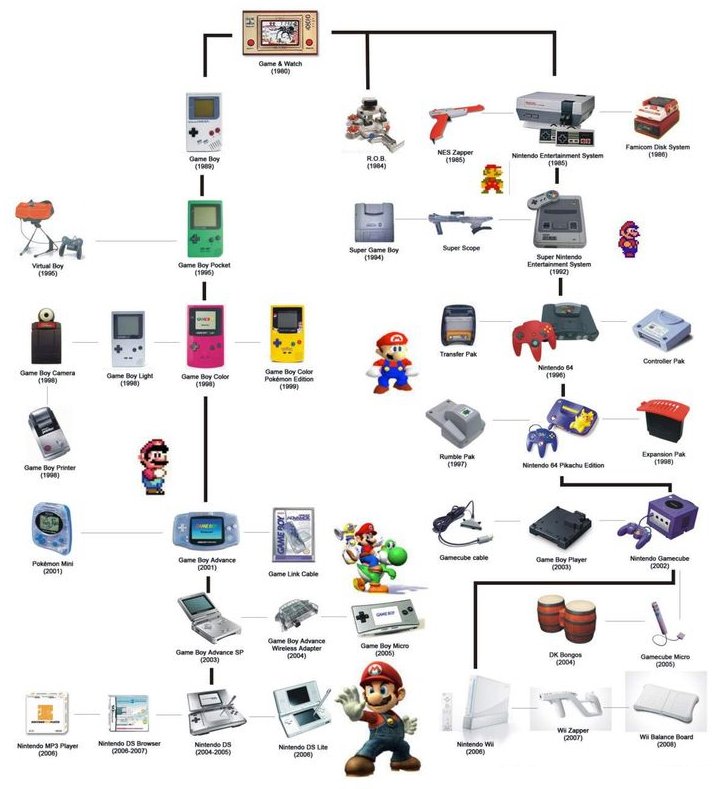
Before the Nintendo GameBoy, the portable gaming scene had no dominant player. Nintendo had its classic Game & Watch handhelds, which included games like Turtle Bridge, Fire, and Mario’s Cement Factory. However, the GameBoy came close to not being the first new handheld to market in 1989. A developer called Epyx was working on a handheld called the Handy, which was later sold to Atari and eventually became the Lynx. The Atari Lynx’s specs trump the GameBoy in almost every single category. The Lynx had a bigger screen, visible color, and had pretty cool games on the way. It made the black-and-white Super Mario Land look anemic by any comparison, but Nintendo had a secret weapon…Tetris.
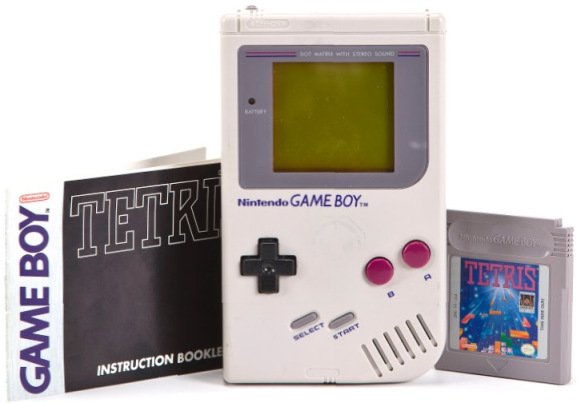
Tetris was basically synonymous when the Gameboy’s success. When Nintendo was first considering shipping the GameBoy, they were planning on shipping Super Mario Land as a pack-in game with the handheld. Hank Rogers, who was instrumental in getting Tetris out of the Soviet Union, convinced Nintendo to ship Tetris as the pack-in game. He is famously quoted as saying “If you want to sell the game to kids, include Super Mario Land as the pack-in game. But if you want to sell it to everyone, include Tetris as the pack-in game.” Nintendo ultimately took his advice, and the Nintendo GameBoy reached a huge audience.
With games like Tetris and Super Mario Land, Nintendo had no trouble overtaking the technically superior Lynx and crushed Sega’s Game Gear, which was another color handheld also more technically capable than Nintendo’s GameBoy. The GameBoy family later grew to contain new models including the thinner GameBoy Pocket and the GameBoy Color. However, over time the GameBoy started to show its age. It needed a new hero and Mario wasn't going to cut it. Nintendo needed a fresh face, 151 fresh faces to be exact. In 1996, Pokémon Green, Red, and Blue were released in Japan. Two years later, Pokémon Red and Blue were released in America.

Pokémon would arguably become one of the most gigantic franchises in the history of videogames, outside of maybe Mario and Call of Duty. Nintendo had attempted to design Pokémon around its GameBoy handheld. After you collected all your Pokémon, if you wanted to battle or trade your Pokémon with your friends, Nintendo offered the Link cable to facilitate this. To make matters better for Nintendo, to collect all of the Pokémon, you would either neither need to purchase multiple games, or you would need a friend with the other Pokémon game. Releasing multiple versions of the same game is a practice still exploited by Nintendo to this day.
Pikachu and the rest of the Pokémon became global superstars, raking in billions for Nintendo in games and merchandise. Despite Pokémon’s success and the popularity of the GameBoy color hardware, Nintendo was looking a little creaky so in 2001, the Nintendo finally made a move to overhaul its aging handheld. The GameBoy Advance was basically a portable Super Nintendo, but with just a little more kick.
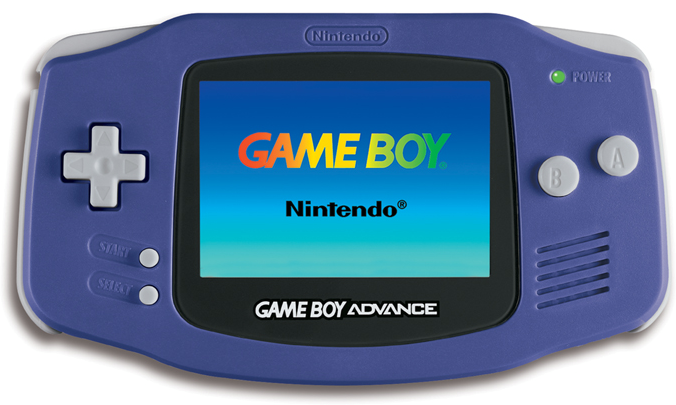
The GameBoy Advance flew off the shelves despite its initial unimpressive design, landscape with a non-backlit screen. Nintendo later upgraded the GameBoy Advance to SP, which featured a cool clamshell design. The SP model was responsible for over half of the GameBoy Advance’s 80 million units sold. Later in 2005, Nintendo released another iteration of the GameBoy Advance, the truly pocket-sized GameBoy Micro.
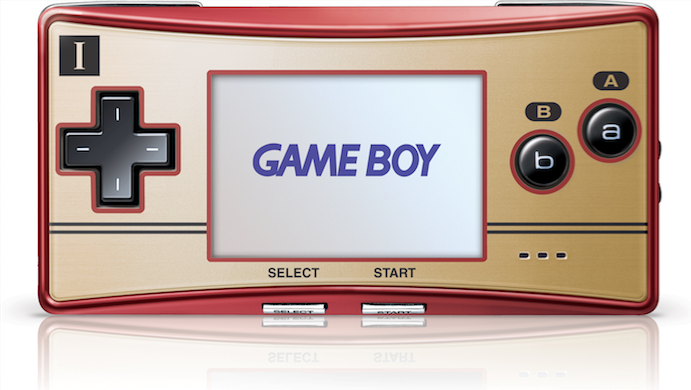
I think originally Nintendo may have wanted the GameBoy Micro to be a mass-market device, much like the Apple iPod Nano at the time. Unfortunately, the Micro was very expensive and outdated from a technology standpoint, and it didn't have that broad appeal of the Nintendo DS. Ultimately, the Nintendo Micro failed miserably. Despite plans to have the DS become the third pillar of the Nintendo family, its runaway success in the 2004 marked an end to the Game Boy era. Even though the Game Boy line is out of production, its influence still reverberates through the industry.
Whether you played the original GameBoy, Pocket, Color, or the GameBoy Advance, there is no denying that the Game Boy line is one of the most influential and successful handhelds to ever be released.
What are your thoughts on the Gameboy… Do you still own your original GameBoy?
And people still want to own and play Nintendo, It's a little crazy to me that Gameboy games have in some cases held their value for over 25 years, If you bought back in the day and kept them nice and in the box, it's almost like an investment!
https://www.pricecharting.com/console/gameboy
Great history lesson for gamers :)
Would you mind if I included this post in the "best of gaming" for today? :)
Thanks :)
Please do- I always read your best gaming posts!
Unfortunately, my old game boy has been sold many years ago. This was with me during my entire childhood. I however remember the competition with Sega and the Game Gear was a bit tighter at that time. But I may be wrong.